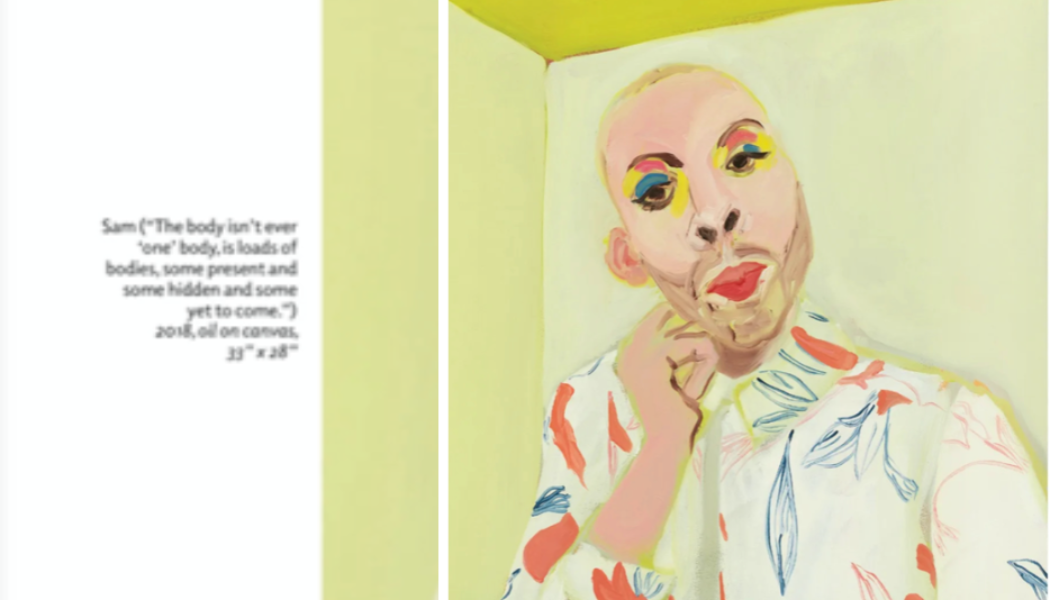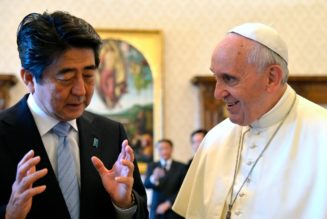St. Mary’s College in Notre Dame, Indiana, is accustomed to its famous next-door neighbor grabbing all the headlines, but in November the all-women’s Catholic college found itself uncomfortably in the spotlight after its plan to admit male students identifying as females became public.
The resulting outcry ultimately prompted the school’s leadership to reverse course on Dec. 21. More than a month after that decision was made, however, the furor still hasn’t died down.
Sparked by concerns about the college’s direction — and suspicions that the transgender student policy is only on a temporary hold — upset students, faculty and alumnae are expressing their disapproval in a variety of ways, including boycotting St. Mary’s current fund drive, circulating a petition to have President Katie Conboy ousted, and launching a new watchdog group focused on protecting and strengthening the 180-year-old institution’s Catholic identity.
“Trust has been broken,” Priscilla Pilon, a 1986 graduate who also served on St. Mary’s alumnae board from 2008 to 2015, told the Register.
Signs of discontent abound in a private Facebook group of concerned members of the St. Mary’s community, which has grown rapidly since the policy change came to light on Nov. 21. The group now has over 840 members. Most are alumnae, but current students, parents, and other supporters are included.
Concerns about St. Mary’s fidelity to its Catholic identity aren’t necessarily new. But community members say the shock of the proposed policy has been a galvanizing force for raising wider awareness of the college’s current trajectory and for bringing like-minded individuals together to do something about it.
“This was so far from Catholic teaching,” said Shannon Ferguson, a parent of a current student, who started the Facebook group. “I think it just alerted so many people.”
What’s more, Conboy and her administration now face pushback from the other side, too. Alumnae and LGBTQ activists who were initially supportive of the decision to accept men who identify as women are now criticizing the reversal as a betrayal of the cause.
“I feel so very sad that a Catholic institution squandered an opportunity to hold up the basic Catholic value of dignity and respect for the human person,” Sister of Loretto Jeannine Gramick, co-founder of New Ways Ministry, told the National Catholic Reporter.
St. Mary’s administration and the board of trustees did not respond to interview requests made by the Register.
Tensions leave some to believe that the story isn’t over.
“Even though the policy reversed, the fight is not over at all,” said Macy Gunnell, a current sophomore who has led the on-campus opposition with Claire Bettag, an SMC junior. “In fact, I think it’s only getting worse from here.”
Admissions-Policy Aftermath
Part of the mistrust between St. Mary’s leadership and the wider community stems from the fact that the change in policy, which opened undergrad admissions to applicants “whose sex is female or who consistently live and identify as women,” was not publicized by the college.
In fact, if Gunnell, who worked in the admissions office at the time, hadn’t learned of the change and leaked it, it’s possible that St. Mary’s incoming class for Fall 2024 may have included men who identify as women.
The change in direction was initially defended by Conboy, who has been president of St. Mary’s since June 1, 2020. She stated that the revised policy was consistent with Pope Francis’ emphasis on love “as the appropriate approach to those who are different from ourselves,” and also claimed it “retains our identity as a Catholic women’s college.”
She also said the change would bring St. Mary’s on par with its peer institutions. Of the eight other Catholic women’s colleges in the U.S., five state on their website that they admit applicants who identify as women: Alverno College (Milwaukee), Mount Mary University, (Milwaukee), Mount Saint Mary’s University (Los Angeles), St. Catherine University (St. Paul), and the College of St. Benedict (St. Joseph, Minnesota)
St. Mary’s reversed its decision after significant pushback—including from the local ordinary, Bishop Kevin Rhoades of the Diocese of Forth-Wayne-South Bend.
The college has been in damage-control mode ever since.
In a letter announcing their decision to retract the policy, Conboy and board chairwoman Maureen Karnatz Smith acknowledged that leadership “clearly underestimated our community’s genuine desire to be engaged in the process of shaping a policy of such significance. As this last month unfolded, we lost people’s trust and unintentionally created division where we had hoped for unity. For this, we are deeply sorry.”
The college is currently holding listening sessions for alumnae and friends of St. Mary’s, with Conboy participating. Students will have the opportunity to meet one-on-one with St. Mary’s vice presidents, with a dialogue session that took place Feb. 4.
But some who have participated in the listening sessions so far question whether the administration is truly open to accepting that the retracted policy is at odds with Catholic teaching — or if the sessions are just a formality.
“These listening sessions seem to be an effort to placate very upset people with the hopes that they will be quiet or go away,” one participant shared in the Facebook group, adding that she wasn’t convinced that Conboy “sees the policy as flawed but rather communicated poorly.”
Significant Changes
The debacle has put Conboy’s three-and-a-half-year tenure as St. Mary’s president under greater scrutiny, including significant changes ushered in by the feminist literature scholar.
Some members of the St. Mary’s community say the college, founded by the Sistes of the Holy Cross in 1844, has long had a focus on social justice and inclusion, but that Conboy has taken the theme in a direction that doesn’t square with Catholic teaching, such as the thwarted push to admit men to a Catholic women’s college.
Some have raised concerns about the opening of a campus LGBTQ+ Center on Oct. 7, 2021. At the center’s opening, which was dedicated to Conboy’s inauguration, the new president said the addition was consistent with her broader plan to make sure St. Mary’s is “invigorated by difference.”
“And that, I think, is what we want at St. Mary’s College,” Conboy said, according to a report by a student publication. “So today—what a great start.”
Conboy’s blueprint is a strategic plan that went into effect January 2021. Titled “Revere and Revise,” the plan includes recommendations to “secure space to support LGBTQ+ students” and “implement appropriate and ongoing DEI education for all constituencies, beginning with the Board of Trustees.” DEI stands for diversity, equity and inclusion.
Conboy’s tenure has also included some controversial hirings, such as her pick for editor of the college’s magazine: her husband, Thomas O’Grady, a retired English professor.
Several Belles have said the position, which oversees the college’s flagship publication, should have gone to a woman. They also suggested it is a conflict of interest to have the president’s husband responsible for screening letters to the editor. The first issue under O’Grady’s tenure included a couple of surprises. Not only was the name changed from The Courier to Avenues, but the Fall/Winter 2023 edition also caused concern by including a painting of a transgender man in a story featuring an alumna’s artwork.

Another controversial hire since the strategic plan went into effect was tapping Franciscan Father Daniel Horan, an academic and author who promotes gender ideology, to lead St. Mary’s Center for Spirituality in August 2021.
Under the auspices of the spirituality center, Father Horan, a member of the Order of Friars Minor, is bringing speakers to campus that raise red flags for those concerned about St. Mary’s Catholic identity. For instance, on Feb. 7, Emily Reimer-Barry, a moral theologian who has pushed back against the Church’s prohibition of abortion, will present on “Reproductive Justice: Insights from Catholic Feminism.” And on March 20, Jason Steidl Jack, a religious studies professor who, along with the man to whom he is civilly married, was the recipient of a New York Times-documented blessing by Jesuit Father James Martin on Dec. 19, will speak on LGBTQ ministry.
Perhaps most concerning to some alumnae was Father Horan’s statement in the aftermath of the Dec. 21 policy reversal.
“Trans women are women. Trans men are men. Nonbinary people are people,” he wrote on Twitter (now called X), expressing an understanding of human sexuality at odds with Catholic teaching. “Just because it’s new or confusing to you doesn’t make it untrue or wrong or sinful or anything other than reality. Instead of denying the existence and experience of others, perhaps you might try learning.”
Father Horan eventually deleted his tweet — by deleting his entire account.
“This is the so-called pastoral leadership at St. Mary’s College,” tweeted Clare Anne Ath, a recent SMC alumna, regarding Father Horan’s views on sexual identity. “The students there need our prayers for an authentic Catholic renewal on campus.”
Viewpoints Suppressed?
The Franciscan friar’s viewpoint, however, is not an outlier on campus.
According to those involved at St. Mary’s, a majority of faculty and the student body are supportive of recent shifts at the college — or are at least not willing to speak out against them.
For instance, shortly after the Dec. 21 reversal of the new admissions policy, the faculty of St. Mary’s psychology department emailed all students in their discipline stating their disagreement with the decision. The email also cited research from the American Psychological Association and the Society for Research in Child Development in support of the “full inclusion of transgender and gender-diverse students.”
According to The Irish Rover, an independent student newspaper at the University of Notre Dame, St. Mary’s students who oppose the policy have faced intimidation and censorship — not only from other students, but also from the St. Mary’s administration.
The development may be part of a larger story of certain viewpoints being limited on campus.
In February 2023, students attempting to start a campus chapter of Turning Point USA, a conservative student organization, were denied official status by St. Mary’s administration due to what were described as the groups “anti-trans” stances and activities, such as selling shirts that said “Real Men Aren’t Women.”
The following April, an SMC senior at the time wrote a letter to Conboy entitled “Losing Catholic Identity on SMC Campus,” saying that college leadership failed to defend the Church’s teaching against abortion and did not provide adequate support to pro-life students and viewpoints had created a culture of fear.
“Supposedly, a diversity of ideas are welcome, but why does this Catholic institution actively promote ideas and campus events that attack the very teachings of Catholicism?” wrote Ashley Kraker, in the letter that was signed by 190 other students and alumnae.
A Call for Change
Ginger Daily, who graduated from St. Mary’s in 1970, acknowledges the need of the institution to adapt to the realities of the current time.
“But at the same time, I believe it is vital to maintain our core values and be a faithful witness to Biblical revelation and what is important to our Catholic faith,” without being “swayed by current cultural ideology,” said Daily.
Daily, like many other concerned alumnae, is withholding her financial giving this year. She said it’s one of the few ways members of the St. Mary’s community feel their voices can be heard.
“I personally can’t contribute to an institution where I don’t believe in their mission, and I am very unsure about the mission of St. Mary’s right now.”
Pilon has a similar perspective, and has taken the college out of her will.
St. Mary’s is currently in the midst of its annual phon-a-thon, resuming the fundraiser last week after it was suspended in November amidst the outcry over the admissions policy.
Those in the Facebook group have taken a common stance: be kind to the student callers, but don’t donate a dime, and make it clear that the reasoning is based on the college’s current direction.
Some see the ongoing controversy as an opportunity for those concerned with St. Mary’s Catholic identity to have a more permanent organization for engaging with college leadership.
To that end, Ferguson and others are launching a group called the Loretto Trust. The initiative is inspired by and working in collaboration with the Sycamore Trust, a long-standing group of University of Notre Dame alumni and friends focused on protecting that university’s Catholic identity.
One of its key priorities is to promote the hiring of more faithful Catholic faculty, in accordance with St. John Paul II’s 1990 apostolic constitution on Catholic universities, Ex Corde Ecclesiae, which stated that Catholics should constitute the majority of the teaching staff.
Others are taking a more aggressive stance: calling for Conboy’s impeachment.
A petition to that effect, started by a recent alumna, on January 22 has over 300 signatures.
Gunnell supports the effort, and told the Register that “as long as President Conboy and even people like [Father] Dan Horan are on campus, it’s only going to get worse,” due to their clear ideological commitments.
“Not only has [Conboy] become such a big liability to the school, but she’s completely defied the foundations that that the school is built upon” as a Catholic women’s college, said Gunnell.
Because of questions about St. Mary’s fidelity to its Catholic identity, concerned alumna like Daily, whose daughter also graduated from the college, say they can’t recommend it to prospective students. She shared that St. Mary’s is no longer an option for her seven granddaughters, including one current high schooler who had been planning on attending with her cousin.
But while some prospective students are looking elsewhere, and current students consider transferring, Ferguson shared that her daughter will remain at St. Mary’s — for now. Her hope is that the opposition to Conboy’s trans admission push will set the stage for more substantive talks about St. Mary’s Catholic identity going forward.
“The policy has been reversed,” she said. “So let’s see if we can start making little changes.”







